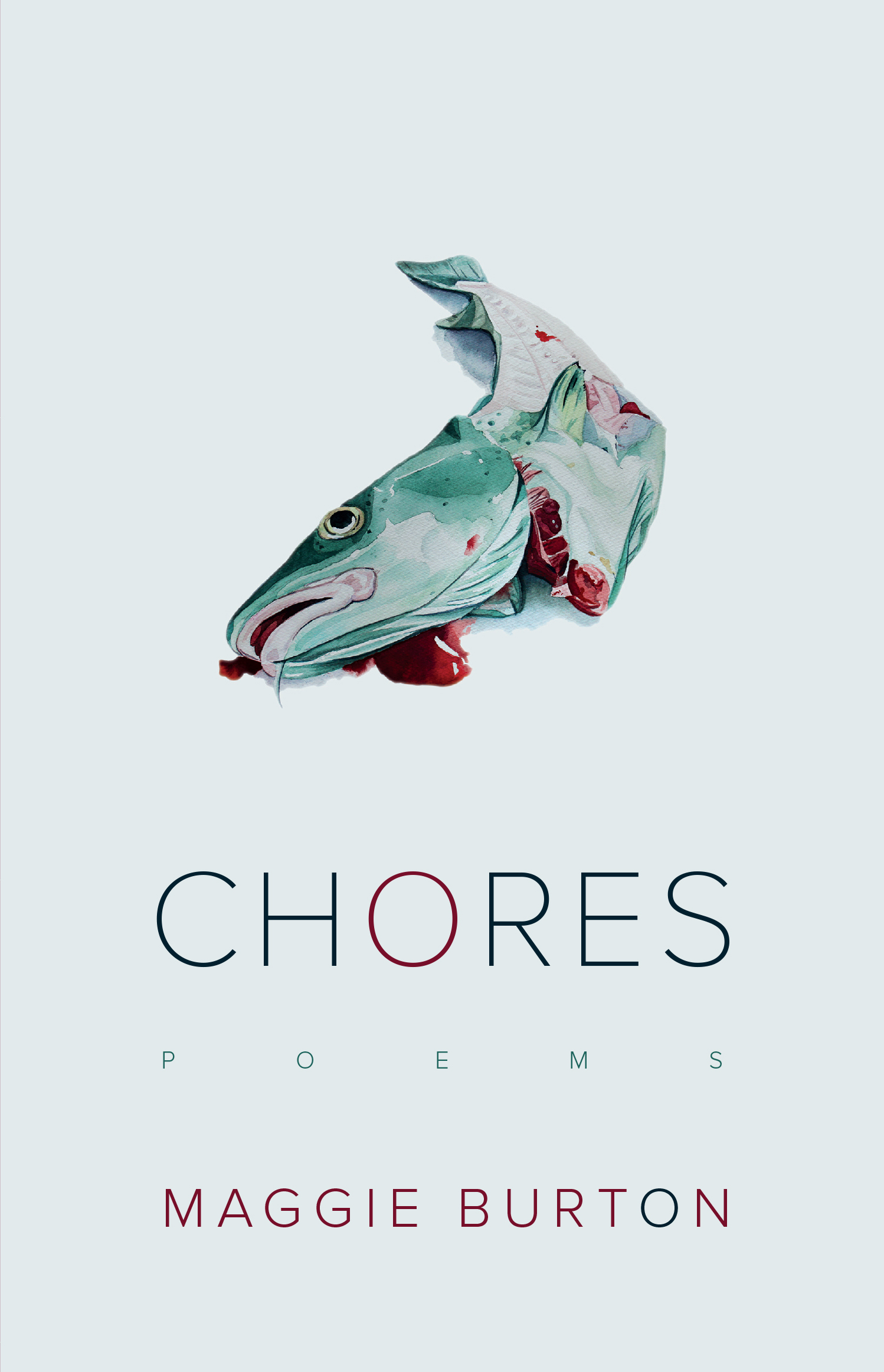Chores
by Maggie Burton
Breakwater Books
64 pages
$20
In the world of Maggie Burton’s Chores, the tedious task can become something deep and fascinating. Chores is a collection of semi autobiographical freeverse poetry from multidisciplinary artist Maggie Burton. Divided into two sections, part l is where the reader catches glimpses of the narrator’s childhood growing up in Newfoundland and Labrador, under the tutelage of Nan (an amalgamation and homage to the Newfoundland matriarch). In part II, the reader hears from an older narrator doing the chores that come with her own household. In these poems, Burton will cause the reader to look at the world anew, searching for a flash of brilliance in the everyday.
Burton’s poetry often reflects on the role women hold sustaining the circle of life, peppered with images of unfiltered biological rawness. The first poem in the collection, “The Midwife” exemplifies this. The first few lines “[s]he caught babies in the winter / laid fish to dry in the summer” sets up a dichotomy of life and death. The focus of the poem, the birth of the twin babies, contrasts with the dead fish the midwife dries. The midwife relishes her duty acting as a go-between in this cycle, prepared to “sop blood, guts” from either process. The biological frankness of this image is vivid. In a twist, the baby is almost thrown out at sea. Burton likens the sea to the womb, writing that the baby was “returning / to something wet, smelling of home.”
The idea of a return to the womb, the return to “somewhere warm and familiar,” is a recurring motif throughout Chores. Burton uses this motif to represent female anatomy and the sea as something important to the cyclical nature of existence. In other poems, Burton experiments with form. B I N G O will immediately catch the reader’s eye; it takes the form of 12 Bingo cards complete with a “free” space in the centre. The form of the poem reflects the context and adds a layer of immersion.
Burton’s clever use of imagery and allusions creates poetry that makes the ordinary and familiar feel new and different. Chores is filled with an unflinching directness toward the female body, sexuality, and the familiar rhythms of folk songs that all weave together to create a fascinating experience—one that encourages the reader to confront the beauty, the strangeness, and interconnectedness of the humdrum existence.














